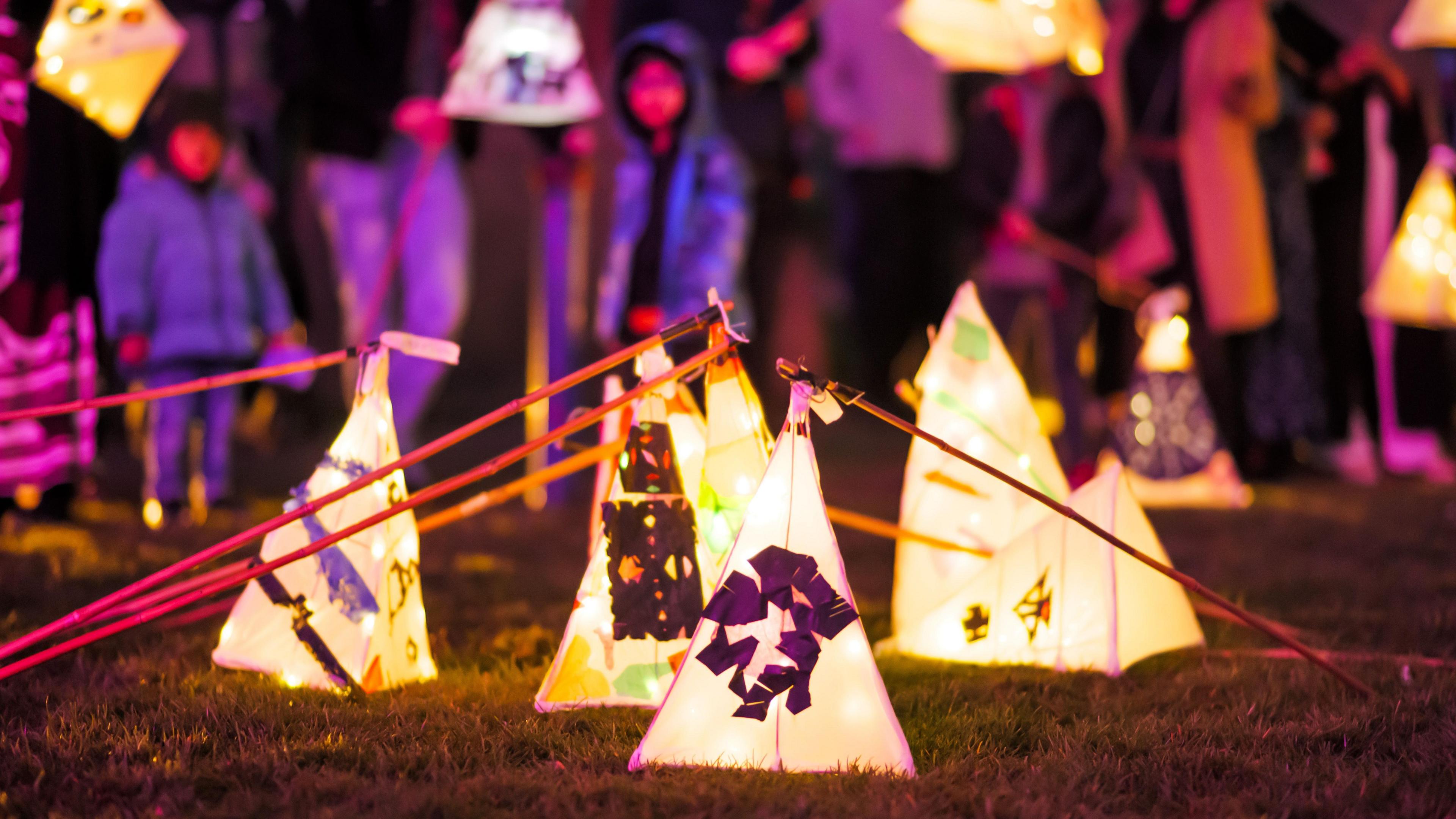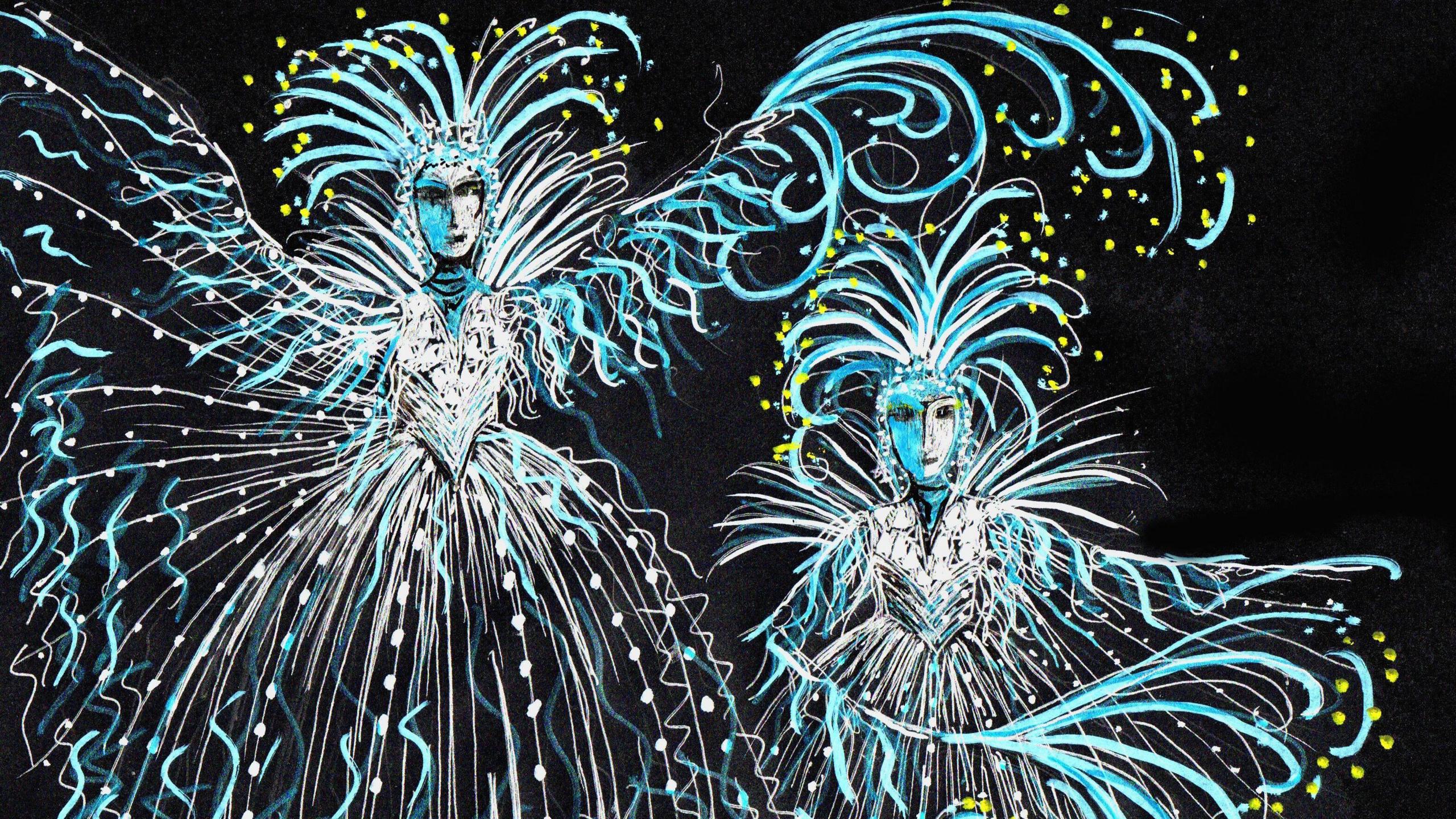City's Festival of the Dead seeks to break taboos

The Festival of the Dead is taking place in Bradford throughout October and November
- Published
People in Bradford are being encouraged to break the taboo of talking about death by taking part in a festival in the city focusing on the subject.
During the Festival of the Dead, free workshops will be held throughout October and November for people to discuss death and reflect on how the dead are remembered, with a commemorative lantern parade also planned for next month.
The two-month festival was organised by the University of Bradford and other local organisations as part of the City of Culture year.
Prof Karina Croucher, from the university, said it was intended "not to be sad, but actually to encourage people to celebrate life and enjoy life and make the most of what we have got".
Prof Croucher, whose research in archaeology looks at differences in how the dead have been treated through time and across the world, said: "Death is universal, but people still find it really difficult to talk about. But talking about it doesn't make it happen."
'Safe space to talk'
Attendees would be able to make their own commemorative paper lanterns at weekly workshops at the City Library, with their creations used as part of the parade in Shipley's Northcliffe Park on 16 November, organisers said.
"In the process of creating, we are hoping that people will also talk," Prof Croucher explained.
She also revealed how her research had found both similarities and differences in how various cultures have remembered the dead.
In one example, during the prehistoric era in south west Asia, people would bury their dead under their homes before removing their skulls and covering them with a new face made of cast, which would then be stored inside the home, according to Prof Croucher.
"It was very apparent that the dead were kept very close," she said.
"A lot of people today would find that very different to what we do, but a lot of people might have ashes on the mantelpiece or have ashes made into cremation jewels and jewellery. How different is it?"
The workshops would be a "safe and open space to talk about death", Prof Croucher said.
"Just because someone is dead, that's not the end of their significance in our lives. They are still important to us and it's OK to acknowledge that."
Get in touch
Tell us which stories we should cover in Yorkshire
Listen to highlights from West Yorkshire on BBC Sounds, catch up with the latest episode of Look North.
Related topics
Related internet links
More stories like this
- Published1 October
